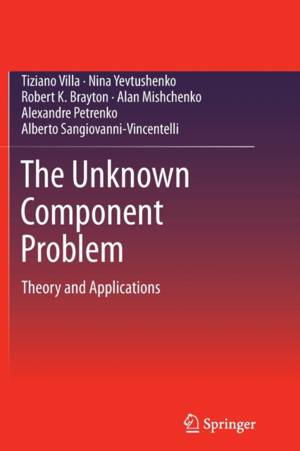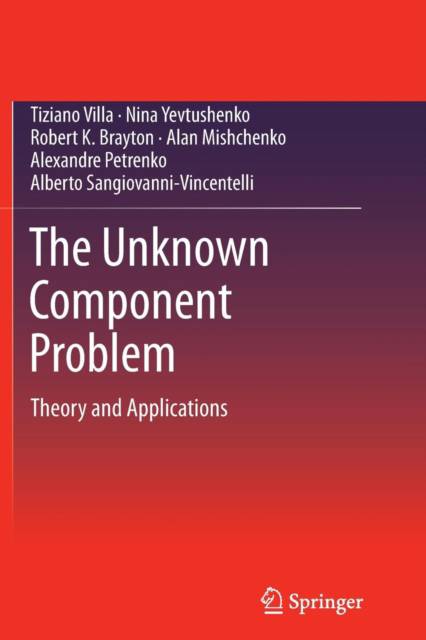
- Retrait gratuit dans votre magasin Club
- 7.000.000 titres dans notre catalogue
- Payer en toute sécurité
- Toujours un magasin près de chez vous
- Retrait gratuit dans votre magasin Club
- 7.000.000 titres dans notre catalogue
- Payer en toute sécurité
- Toujours un magasin près de chez vous
The Unknown Component Problem
Theory and Applications
Tiziano Villa, Nina Yevtushenko, Robert K Brayton, Alan Mishchenko, Alexandre Petrenko, Alberto Sangiovanni-VincentelliDescription
The authors of this book cast the problem as solving abstract equations over language and study the most general (largest) solutions under the synchronous and parallel composition operators. They also apply such equations to languages associated with important classes of automata used for modeling systems, e.g., regular languages as counterparts of finite automata, FSM languages as counterparts of FSMs. The authors investigate the largest subsets of solutions closed with respect to various language properties; in particular, classes of the largest compositional solutions (defined by properties exhibited by the composition of the solution and of the context). The first algorithm to compute the largest compositionally progressive solution of synchronous equations is provided. This approach unifies in a seamless frame previously reported techniques.
Spécifications
Parties prenantes
- Auteur(s) :
- Editeur:
Contenu
- Nombre de pages :
- 312
- Langue:
- Anglais
Caractéristiques
- EAN:
- 9781489973948
- Date de parution :
- 25-01-14
- Format:
- Livre broché
- Format numérique:
- Trade paperback (VS)
- Dimensions :
- 156 mm x 234 mm
- Poids :
- 458 g







